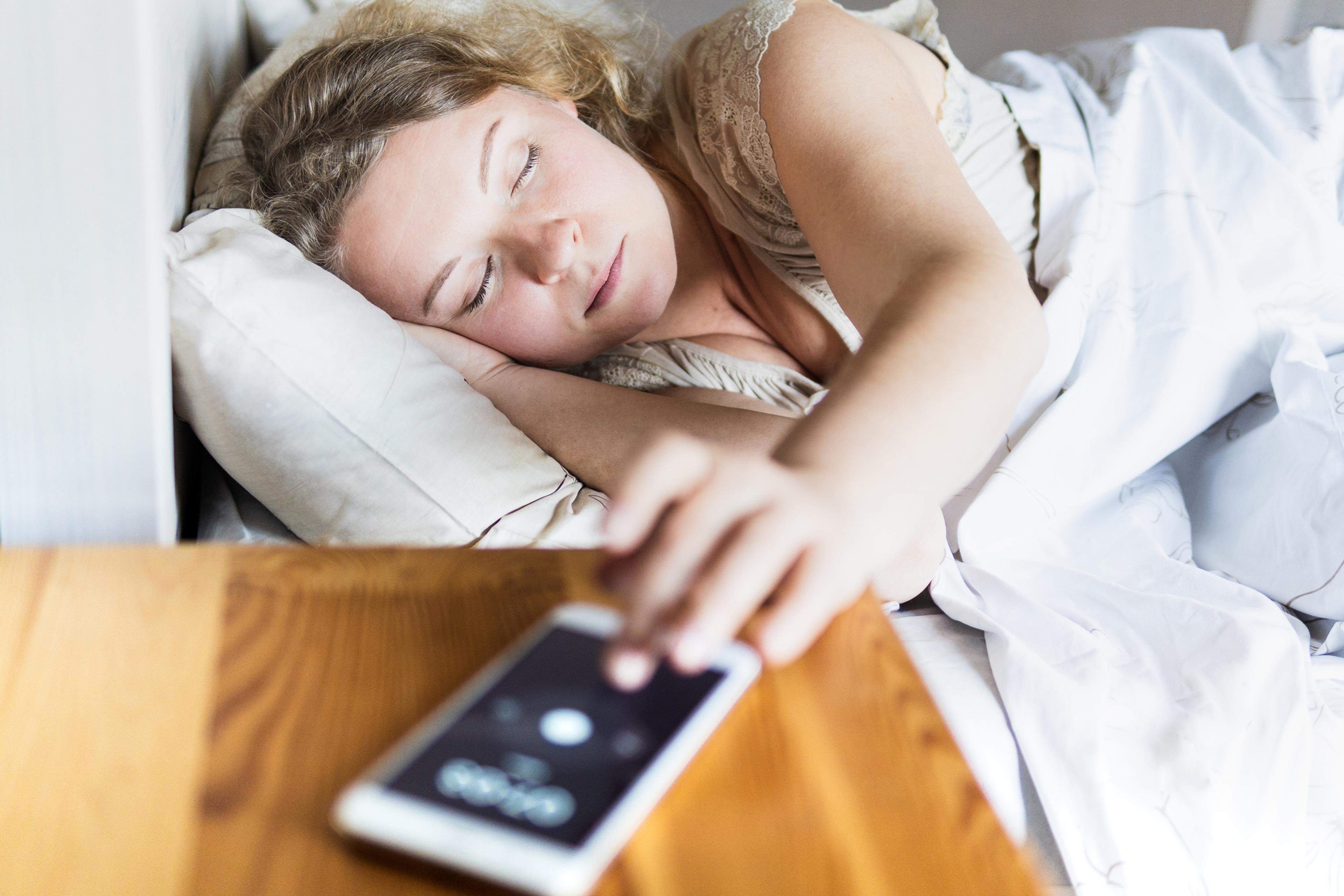Sleep Series: Is the Snooze Button Sabotaging Your Sleep Quality?

Jake Newby
| 4 min read
Jake Newby is a brand journalist for Blue Cross Blue Shield of Michigan.

Are you a snoozer, or do you get up to start the day as soon as your alarm clock buzzes?
If you’re prone to snoozing, you may be curious to know whether it leads to meaningful, restorative sleep or if smashing the snooze button is detrimental. There wasn’t much research on the effects of snoozing until the past couple of years, and that research is conflicting.
So, is it better to hit snooze or just wake up? Let’s try to answer a question that doesn’t have a straightforward answer.
How common is snoozing?
A 2025 study analyzing sleep data from more than 21,000 people across the world found that the snooze button was pressed in close to 56% of the 3 million nights studied. Additionally, 45% of study subjects hit the snooze button on more than 80% of mornings. These heavy users snoozed, on average, 20 minutes a day.
Is hitting the snooze button a good way to get extra sleep?
A relatively small 2024 study featuring more than 1,700 participants found snoozing to be common among younger adults and individuals considered “late chronotypes,” which are people who tend to fall asleep and wake later than others.
A smaller study within that study examining 31 habitual snoozers found snoozing to have a neutral effect on their overall wellbeing. There were no significant negative effects on mood, sleepiness or cortisol awakening response, which measures how alert the body becomes after waking up.
Authors of the study suggest that snoozing might help avoid waking from deep sleep abruptly, which could alleviate sleep inertia — the grogginess and confusion we sometimes feel immediately after waking.
Is hitting the snooze button a good way to get extra sleep?
If you’re someone who is able to fall back asleep for 20 or 30 minutes after hitting snooze, the sleep you’re getting is likely light, fragmented and non-restorative, according to the Cleveland Clinic. Frequent short awakenings toward the end of a night’s sleep may disrupt late REM sleep, which is considered restorative. Other experts believe going back to sleep in this fashion typically only offers you light sleep in between snooze alarms.
Lead authors of the aforementioned 2025 study that analyzed 21,000 people noted that more than half of sleep sessions ended in a snooze alarm and users spent an average of 11 minutes in between snooze alarms each morning before waking.
Reliance upon snooze in this study varied based on the day, with more snooze alarm use happening during the weekdays and the lowest snooze alarm utilization occurring on Saturday and Sunday mornings. Heavy snooze alarm users in this study also demonstrated more erratic sleep schedules than other categories of users.
Finally, the lead author of this study said the snooze alarm disrupts some of the most “important stages of sleep, specifically Rapid Eye Movement (REM) sleep. They offered that the best approach for optimizing sleep and next day performance is to set your alarm for the latest possible time, then commit to getting out of bed when your first alarm goes off.
While some people can get conditioned to hitting snooze and actually get used to it, it may indicate that the person needing to repeatedly do this either does not get enough sleep or possibly has an underlying sleep disorder – such as obstructive sleep apnea or chronic insomnia – according to the Cleveland Clinic.
Lose the snooze by practicing better sleep hygiene
It likely won’t happen overnight, but if you get into a habit of going to bed and waking up at the same time each night – even on weekends – your body’s internal clock will adapt and you’ll naturally get up at the desired time each day. That would nullify the need for the snooze button.
Here are a few other sleep-healthy habits to apply:
- Avoid alcohol and caffeine several hours before bed.
- Avoid screen time one to two hours before bed.
- Exercise during the day to regulate energy levels.
- Create a dark, cool sleeping environment in which your blinds and curtains are shut, the temperature is between 60- and 67-degrees Fahrenheit and your bedroom is free of unwanted noise. You can also try wearing a sleep mask or earplugs.
- When unable to sleep, don’t sit in bed waiting to fall asleep. Get up and return to bed when you feel like retiring.
More from MIBD’s sleep series:
- How to Handle Postpartum Night Sweats
- What Color Light is Best for Sleep?
- Is Mouth Taping for Sleep Helpful or Harmful?
Photo credit: Getty Images





